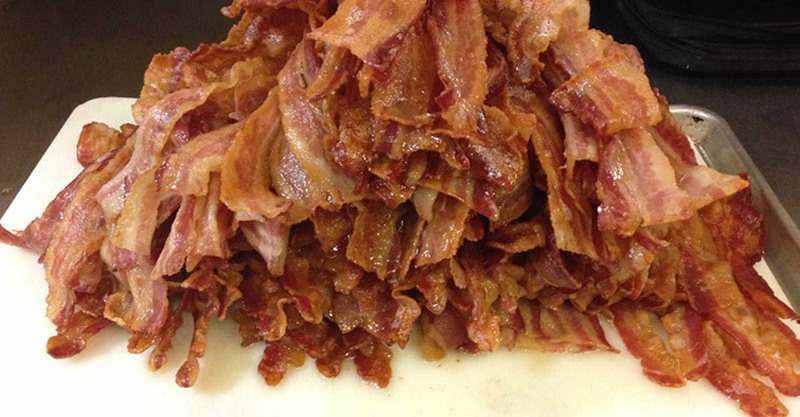Everyone’s had to deal with cancer in some capacity, whether you’ve had it yourself or a loved one has suffered from it, it’s a disease that touches so many. Approximately 38.4% of people in the U.S. will be diagnosed with cancer at some point during their lifetime (1). But you have more control over getting cancer than you may think, and your lifestyle plays a big part in cancer prevention.
Why Processed Meats Cause Colorectal Cancer
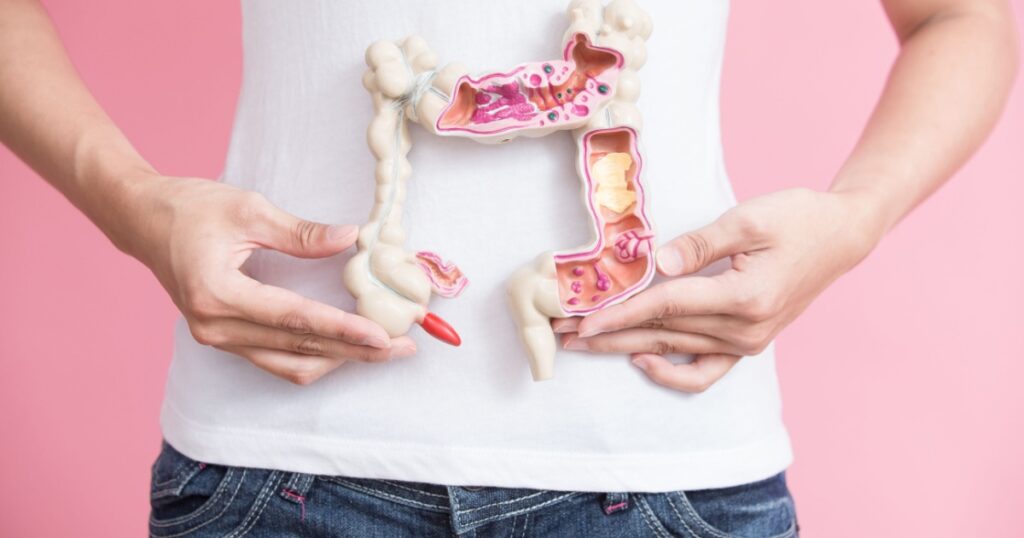
In a study conducted by the World Cancer Research Fund on meat and fish products, it was concluded that there was strong evidence that processed meats increase the risk of colorectum cancer (2). The term “processed meat” refers to the transformation of meats through curing, fermentation, smoking, salting, or other processes used to preserve and enhance the flavor of meat (2). Some well-known processed meats include bacon, salami, ham, sausages, and hotdogs (3). In general, the more processed meat a person consumes, the higher their risk of certain cancers (2).
Read More: ‘Beloved’ College Dancer Diest at 20 of Bone Cancer
There are a couple reasons why processed meats, in particular, lead to colorectal cancer when consumed in high quantities
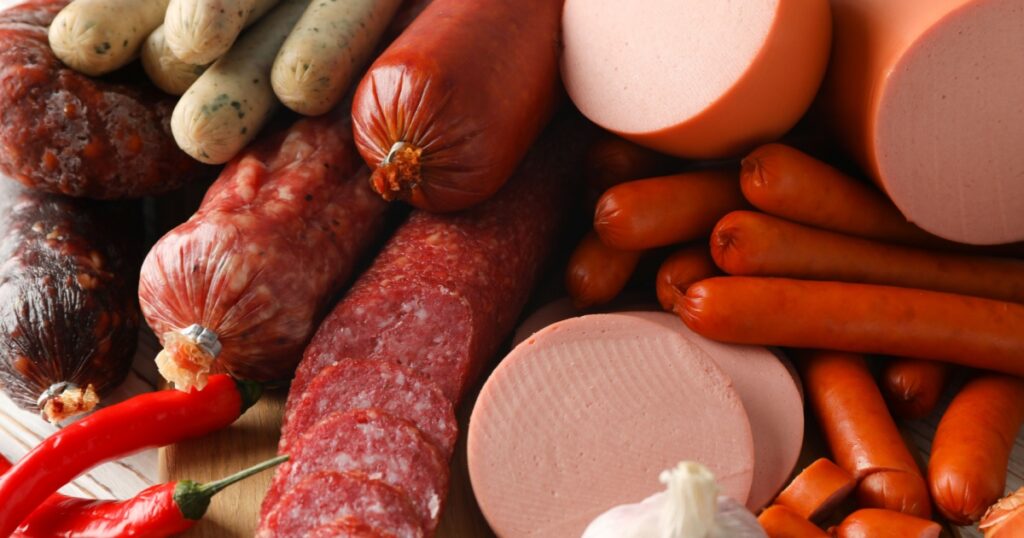
The first reason is that processed meat is rich in heme iron and fats, which both promote the formation of carcinogens (2). Heme iron assists in the formation of carcinogens through promoting colorectal tumorigenesis, while fats do so through the synthesis of secondary bile acids (2). Another contributing factor is that processed meats are cooked at high temperatures, which increases their exposure to heterocylic amines and polycylic aromatic hydrocarbons, both of which have been linked to colorectal cancer development (2).
Alcohol Linked to A Variety of Cancers

Alcohol consumption has also been associated with the development of cancer. The World Cancer Research Fund’s major findings on the links between cancer and alcohol indicated that there was strong evidence alcohol increases the risk of mouth, pharynx, larynx, esophageal, breast, colorectal, stomach, and liver cancer (4). Researchers don’t fully understand the relationship between alcohol consumption and an increased risk for developing certain cancers, but acetaldehyde and ethanol are thought to play a part (4). Acetaldehyde is a toxic metabolite in alcohol that interrupts DNA synthesis and repair, which may contribute to the development of carcinogens (4). Ethanol increases the production of reactive oxygen species, which have the potential to damage genetic information and cause cancer (4). Luckily, making simple lifestyle changes can lower your chance of getting cancer. Here are 7 Ways You Can Decrease Your Risk of Cancer:
1. Cut Out Processed Foods
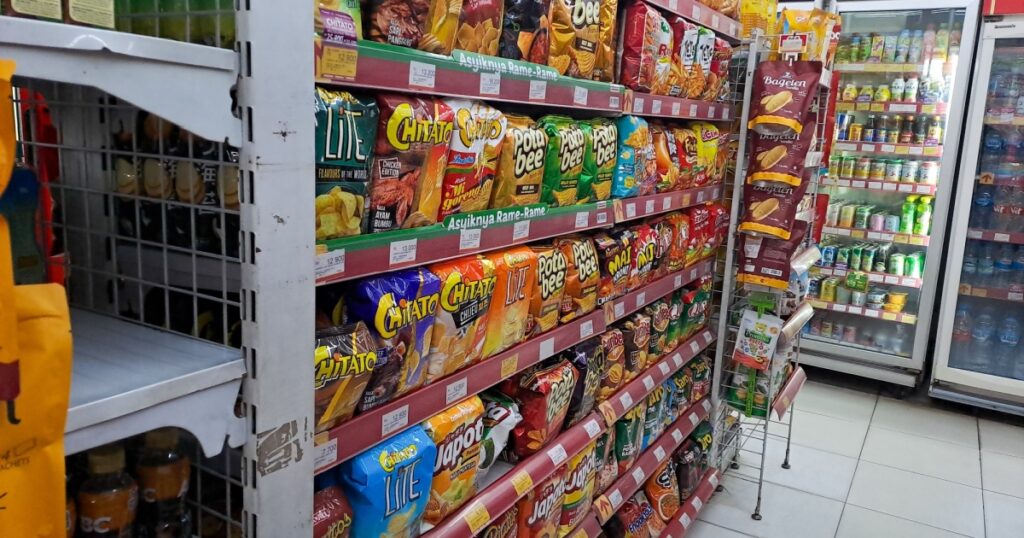
Given the strong evidence that processed meats cause colorectum cancer, it’s probably safest to cut them out for good (2). Ultra-processed foods, products that combine processed ingredients like chips and sweets, should be eliminated from your diet as well (5). In a prospective study on 104, 980 participants, it was found that a 10% increase in consumption of ultra-processed foods resulted in an over 10% increase in the risk of overall cancer (6). Cutting out these foods from your diet is one of the best cancer prevention methods. Researchers don’t fully understand the relationship between alcohol consumption and an increased risk for developing certain cancers, but acetaldehyde and ethanol are thought to play a part (4). Acetaldehyde is a toxic metabolite in alcohol that interrupts DNA synthesis and repair, which may contribute to the development of carcinogens (4). Ethanol increases the production of reactive oxygen species, which have the potential to damage genetic information and cause cancer (4). Luckily, making simple lifestyle changes can lower your chance of getting cancer.
2. Limit Alcohol Intake

Drinking any amount of alcohol can increase your risk of mouth, pharynx, larynx oesophageal, and breast cancer (4). Having over two alcoholic drinks a day can increase your risk of colorectal, stomach, and liver cancer (4). Try to limit your alcohol intake to special occasions only in order to decrease your risk of developing these cancers.
3. Exercise More

There is substantial evidence indicating that higher levels of physical activity are linked to lower risks of colon, breast, and endometrial cancer (7). The U.S. Department of Health and Human Services recommends that adults engage in at least 2 hours and 20 minutes of moderate-intensity aerobic exercise and 1 hour and 15 minutes of vigorous-intensity aerobic exercise per week (7).
4. Quit Smoking
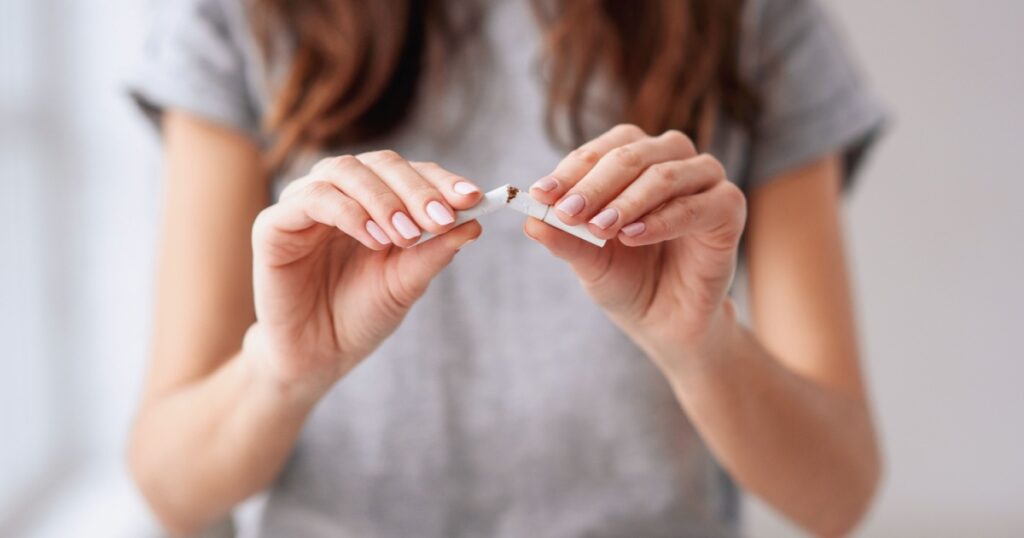
Quitting smoking is a well-known way to reduce your risk of developing lung cancer, but approximately 15.5% of U.S. adults still smoke despite this risk (8). Of the 250 harmful chemicals in tobacco smoke, at least 69 of them are known to cause cancer (9). With statistics like that, there’s no reason to still light up.
5. Adopt a Mediterranean Diet
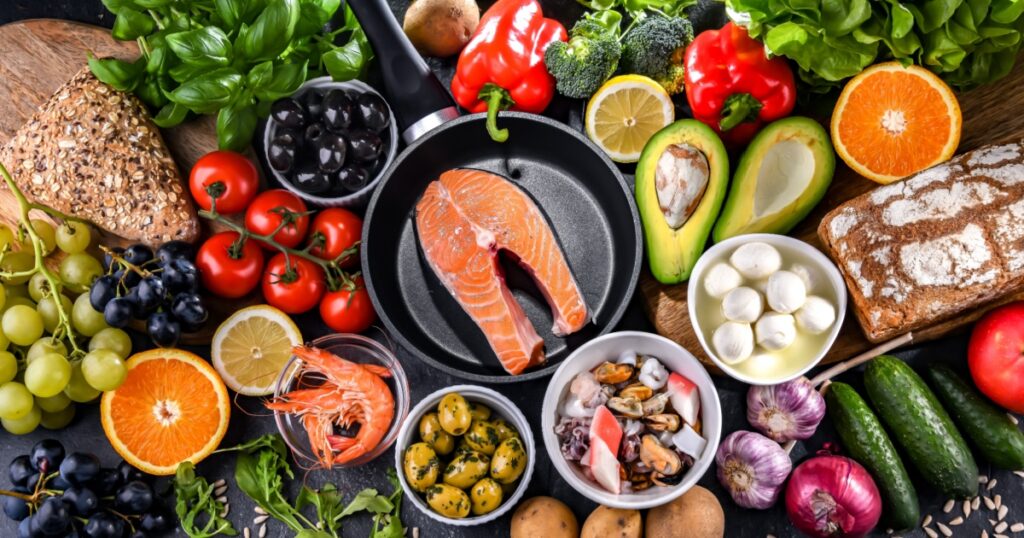
The Mediterranean diet has been associated with a reduced risk of developing breast, colorectal, gastric, liver, and esophageal cancer (10). This diet consists mainly of vegetables, legumes, whole grains, olive oil, potatoes, fruits, fish, and small amounts of red meat (10). This dietary pattern is pretty easy to follow and lowers the risk of other chronic diseases as well (10).
6. Avoid Endocrine Disrupting Products
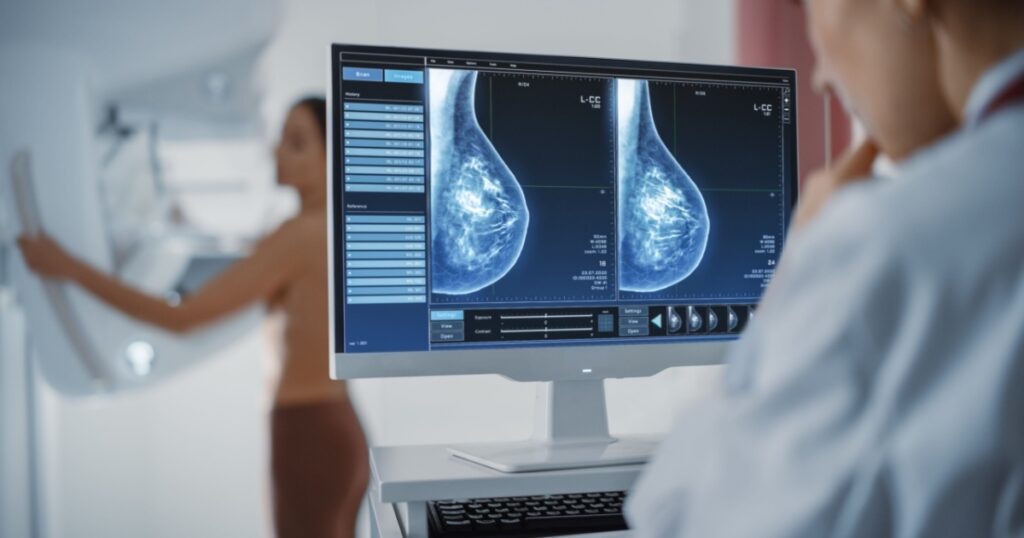
Endocrine disruptors are chemicals that mimic hormones and have a carcinogenic effect on hormone-dependent cancers, like breast and prostate cancer (11, 12). Look out for UV filters, triclosan, perchlorate, parabens, BHA, BHT, bisphenol A, phthalates, and perfluorinated chemicals in the products you buy (11).
7. Protect Your Skin

Protecting your skin from the sun’s UV rays is one of the best ways to avoid getting skin cancer. Try to stay in the shade, cover exposed areas, and use plenty of sunscreen that doesn’t contain UV filters (13, 11).
The Bottom Line

The fact that the chance of getting cancer is statistically high shouldn’t discourage you from making lifestyle changes that can lower your risk. Making these small adjustments is well worth the extra years of being cancer-free you’ll get. Remember, your fate is in your hands. Read this next to learn about other surprising ways to decrease your risk of cancer.
Read More: Finally! Blood Test Could Catch Lung Cancer Before It’s Too Late
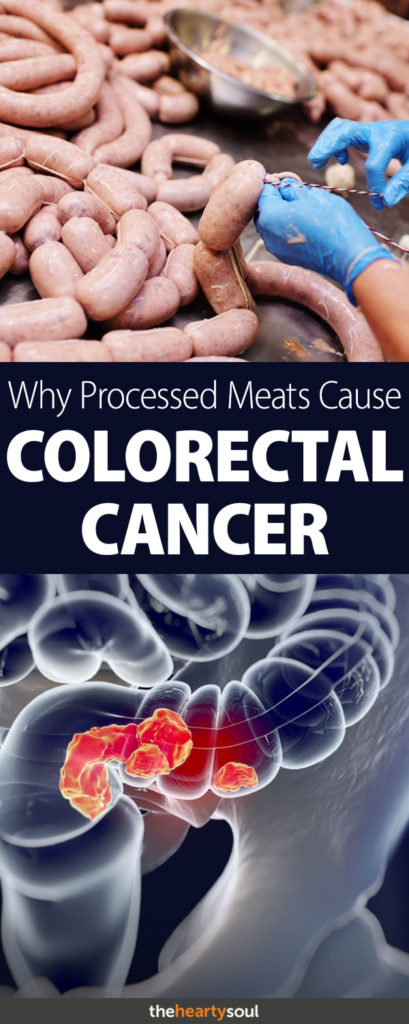
Sources
- Cancer Statistics. (2018, April 27). Retrieved from https://www.cancer.gov/about-cancer/understanding/statistics
- Meat, fish and dairy products and the risk of cancer. (2018). Retrieved from https://www.wcrf.org/dietandcancer/exposures/meat-fish-dairy
- Preservation and processing of foods and the risk of cancer. (2018). Retrieved from https://www.wcrf.org/dietandcancer/exposures/preservation-processing
- Alcoholic drinks and the risk of cancer. (2018). Retrieved from https://www.wcrf.org/dietandcancer/exposures/alcoholic-drinks
- Diaz, S.G. (n.d.). Ultra-processed foods. Retrieved from https://www.leeds.ac.uk/yawya/science-and-nutrition/Ultra%20processed%20food.html
- Fiolet, T., Srour, N., Sellem, L., Kesse-Guyot, Q., Alles, B., Mejean, C., Deschasaux, M., Fassier, P., Latino-Martel, P., Beslay, M., Hercberg, S., Lavalette, C., Monteiro, C.A., Julia, C. Touvier, M. (2018, February 14). Consumption of ultra-processed foods and cancer risk: results from NutriNet-Sante Prospective cohort. BMJ. Retrieved from https://www.bmj.com/content/360/bmj.k322
- Physical Activity and Cancer. (2017, January 27). Retrieved from https://www.cancer.gov/about-cancer/causes-prevention/risk/obesity/physical-activity-fact-sheet
- Current Cigarette Smoking Among Adults in the United States. (2018, February 15). Retrieved from https://www.cdc.gov/tobacco/data_statistics/fact_sheets/adult_data/cig_smoking/index.htm
- Harms of Cigarette Smoking and Health Benefits of Quitting. (2017, December 19). Retrieved from https://www.cancer.gov/about-cancer/causes-prevention/risk/tobacco/cessation-fact-sheet
- Qaqundah, M. (2017, May). Mediterranean Diet for Cancer Prevention. Natural Medicine Journal, 9 (5). Retrieved from https://www.naturalmedicinejournal.com/journal/2017-05/mediterranean-diet-cancer-prevention
- Andrews, R. (n.d.). About Endocrine Disruptors. Retrieved from https://www.precisionnutrition.com/all-about-endocrine-disruptors
- Rochefort, H. (2017, October). Endocrine disruptors (EDs) and hormone-dependent cancers: Correlation or casual relationship? Comptes Rendus Biologies, 340 (9-10). Retrieved from https://www.sciencedirect.com/science/article/pii/S1631069117301282
- How Do I Protect Myself from UV Rays? (2017, May 22). Retrieved from https://www.cancer.org/cancer/skin-cancer/prevention-and-early-detection/uv-protection.html
